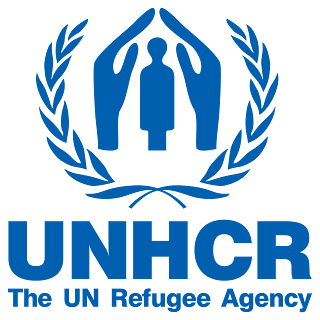PANIC AS UNHCR WITHDRAWS FINANCIAL ASSISTANCE FROM LGBTI REFUGEES
The whole thing started earlier last year as the
organization scrapped off ksh.1500 from the Ksh.6000 (USD 60) which constituted
as monthly stipend to LGBTIQ refugees. The current directive came in Earlier in
the month of June 2017 as HIAS-Kenya sent Sms messages to refugees’ mobiles
informing them about the yet to come directive. “As you are aware, financial assistance was ending in the month of
June. However, since we didn’t communicate on time, FA has been extended by one
month to July 2017. Please note that there will be a delay in processing FA for
July 2017. We will communicate once the funds have been disbursed to individual
cards.HIAS” the directive read.
Luckily this was lifted by 3 months as a lot of concerns
were raised about the by then yet to come August 8th Kenya general
elections which are internationally known to be chaotic.
The directive has caused a lot of panic among the lgbtiq
refugees as they are wondering what the next step would be. The population has
since lived in a life full of worry and discomfort provided the environment and
the homophobic communities they live in.
LGBTIQ refugees are persons who have fled their home
countries for fear of persecution and fear for their lives due to their sexual
orientation. It is illegal and punishable by law to be gay in their home
countries. These persons have since fled to Kenya to seek asylum. These are
people who have left their countries undecided-fully and unwillingly but rather
the situations in their home countries against their sexual orientation. LGBTIQ
refugees in Kenya come from as far as Uganda, Rwanda, Burundi, and Congo coming
with little or nothing on them in kind of food or money. They are persons who
have had a strong history of violence and hence go through a lot of trauma in
their lives.
The LGBTIQ refugees have been all along receiving a monthly
stipend amounting to Ksh.4500 (appx. USD 45); this is after the deduction of
ksh.1500 from the previous ksh.6000 (appx. USD 60) that the organization used
to offer but was later adjusted to the current Ksh.4500 for reasons unknown
since June 2016. From then (June 2016) an increase in cases of insecurities and
arrests has been reported as these people opt to involve in sex-work which is a
crime and punished by law in Kenya as they try raise incomes to cater for their
amenities, rent, food & medical given the Ksh.4500 offered by UNHCR can
sustain them for only a week or two. As a matter of fact the cost of living in
Kenya is too high for one to survive on 4500 a month given he/she has to cater
for compulsory house rent, food & medical bills; Blackmail has been on the
rise as a result of involving in the practice of the illegal sex-work and worse
enough it is gay sex-work. Additionally, this has further exposed them to their
hostile and homophobic host communities.
It is on records that even after the reduction of the
monthly stipend, a large number of refugees do not get the said amount either,
at least a 25% of the lgbtiq refugees have not been getting any financial
assistance from UNHCR and its implementing partner HIAS-Kenya for over 7 months
and more. The most victim of this are the New arrivals who have fled their
countries and have registered with UNHCR as of January 2017.
In regard to all the
above, we as Cosir-Kenya, we have managed to come up with ideas dedicated to
help our fellow lgbtiq refugees to attain self-sustaining lives in Kenya as
they wait for their long awaited and slow resettlement processes from UHNCR.
Our self-help little organization has identified a number of
risk-free activities that fellow lgbtiq refugee can involve in to earn a
living. The projects include individual and communal based.
Cosir-Kenya has tried to create awareness amongst the host
environments about lgbti persons. The awareness has so far started baring fruits
as through the program we have managed to approach different firms and
individuals to source for employment both formal & informal ones for our
fellow refugees –those enrolled have registered a minimal economic independence
and we hope for better results in the long run.
We are planning to start on agriculture based projects –for
we have identified them as of high yields and can occupy a reasonable number of
refugees. Given that a number of us have been identified having a lot of
knowledge of agriculture, we sought this will make the project inevitable. The
group is therefore trying tooth and nail to mobilise for funds to kick-start
this project as it requires huge sums of initial costs to have it in place. Listed
are number of projects identified in the agriculture sector;
1)
Poultry
2)
Piggery
3)
Greens and vegetable
4)
Maize growing
5)
Horticulture




Comments
Post a Comment